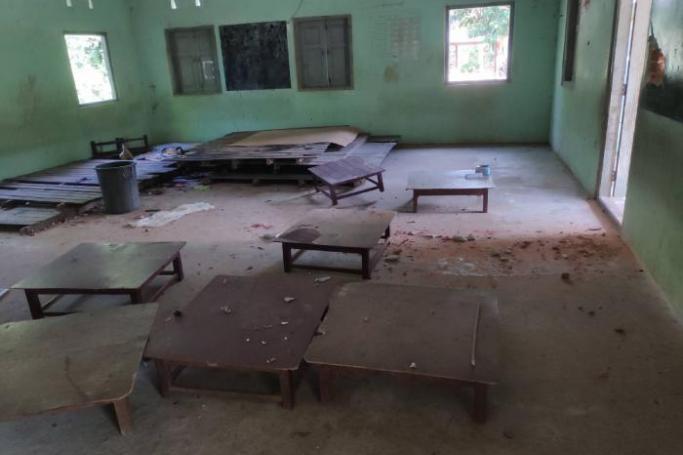The United Nations Office of the Commissioner of Human Rights Office has recommended Myanmar’s military regime immediately implement the UN Security Council’s resolution to cease all violence in the country.
Covering trends and patterns in violation of international law from 1 April 2022 to 31 July this year, the “2023: OHCHR Report to the Human Rights Council’s 54th Session” report also suggested that the junta allow for full, unrestricted, predictable humanitarian access to all those in need by international and national organizations, to support inclusive and transparent political processes to return Myanmar to a path of democratic development, to take all necessary measure to ensure that members of the Rohingya community are not further victimized, and to provide OHCHR with meaningful access to Myanmar.
The report also advised all parties in Myanmar to protect civilians in full respect of international human rights law and international humanitarian law, to allow for full, unrestricted, predictable humanitarian access to all those in need by international and national organizations, to cooperate with relevant international human rights and accountability mechanisms to support evidence-gathering processes on crimes committed in Myanmar against the civilian population, to ensure that allegations of human rights abuses against the civilian population are promptly and transparently investigated and that perpetrators are held accountable.
It also concluded that the human rights crisis has continued to deteriorate mostly due to systematic use by the military of airstrikes, mass killings, and burnings against the civilian population in the third year since the coup.
“Emboldened by confidence in impunity, military actions have grown in intensity and brutality resulting in interconnected humanitarian, political, and economic crises. Denial of humanitarian access to people in need of life-saving aid persisted, even following the disastrous impact of Cyclone Mocha,” the report said.
During the reporting period, Myanmar military’s airstrikes increased to 687, killing at least 281 individuals, compared to the 301 aerial attacks between 1 February 2021 and 31 March 2022.
The military mainly targeted the ethnic areas, particularly Kachin, Kayah, and Kayin.
The report noted a 330 percent increase in airstrikes in the central regions with figures raising from 79 to 344. Sagaing alone accounts for 258 of the 344 airstrikes and 36 percent of the total nationwide.
In Kachin state, the military destroyed 1,424 houses in 14 villages in Shwegu Township between 23 March and 11 April 2023, and hundreds of houses were burnt in other areas of the state.
The military’s ground forces entered villages, rounded up residents, and executed them, while they committed inhuman treatment to inflict unimaginable pain on their victims, including by burning them alive, dismembering, raping, beheading, bludgeoning, and using them as protection against attacks and landmines.
The report also said the military burned not only homes, but also targets food stores, seed banks, and livestock, to punish a perceived hostile population and prevent access to food for its opponents.
In the aftermath of Cyclone Mocha in Rakhine on 14 May 2023, the military threatened legal action against individuals and outlets reporting figures different than those provided by them, effectively preventing any further documentation as the initial figures of Rohingya causality reached 400, nearly four times higher than 116 from the military’s report.
The report was made with the findings from over 161 interviews with victims and survivors, corroborated by satellite imagery, verified multimedia files, credible open-source information, and regular collaboration, data and information exchanges with local and international organizations and duty-bearers.
The OHCHR has asked the Security Council and its member States to refer the full scope of the current situation in Myanmar to the International Criminal Court and continue to support documentation and accountability efforts, to ensure that no direct and indirect supply of weapons, ammunition, military vehicles and equipment, dual-use goods, and jet fuel is provided to the military, to collaborate with the private sector to avoid providing revenues to the military that may be used to commit human rights violations and other crimes under international law,
It also requested the international community to ensure that Rohingya in Myanmar, Bangladesh, and elsewhere have access to sufficient food, medicines, and shelter and take concrete action to process voluntary resettlement, while granting asylum to Rohingya victims of human rights violation












